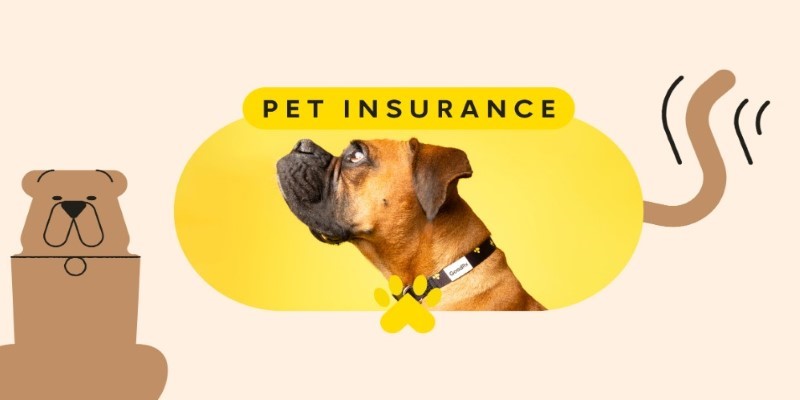Is Pet Insurance Worth It? A Guide To Protecting Your Pet’s Health And Your Wallet
As pet ownership continues to rise, so does the importance of ensuring our furry friends receive the best medical care possible. But with veterinary costs skyrocketing, many pet owners find themselves asking whether pet insurance is a worthwhile investment. Understanding the ins and outs of pet insurance can help you make an informed decision about protecting your pet’s health and your wallet.
Understanding Pet Insurance
Pet insurance functions much like health insurance for humans. You pay a monthly premium, and in return, the insurance covers a portion of your pet’s veterinary expenses. The specifics can vary widely between policies, including what is covered, deductibles, and reimbursement rates. Typically, there are three main types of coverage: accident-only policies, which cover emergencies and injuries; time-limited policies, which provide coverage for specific conditions for a set period; and comprehensive policies, which cover a wide range of health issues, including routine care.
When considering whether to purchase pet insurance, it’s crucial to read the fine print of any policy. Terms can be complicated, with various exclusions and limitations. For instance, pre-existing conditions—those diagnosed before you buy the policy—are often not covered. Additionally, some policies might exclude certain breeds or ages. Therefore, understanding these details can help you gauge whether a specific plan aligns with your pet’s needs.
The Rising Costs Of Veterinary Care
Veterinary care can be surprisingly expensive. As of 2024, the average cost of a routine vet visit can range from $50 to several hundred dollars, depending on the services provided. If your pet needs emergency care, the costs can skyrocket. For instance, emergency surgery can cost thousands, and treatments for chronic conditions, such as diabetes or arthritis, can add up significantly over time. Given these rising costs, pet insurance may seem appealing, as it can help mitigate financial stress when unexpected medical issues arise.

Evaluating The Benefits Of Pet Insurance
One of the primary benefits of pet insurance is peace of mind. Knowing that you have financial assistance for unexpected veterinary bills can alleviate stress during difficult times. When faced with an emergency, pet owners might feel pressured to make quick decisions regarding treatment, often influenced by financial considerations. Insurance can provide a safety net, allowing you to focus on your pet's health without worrying as much about the costs involved.

Another significant advantage of pet insurance is that it encourages regular vet visits. Many policies offer wellness plans that cover routine check-ups, vaccinations, and preventive care. Regular check-ups can help catch health issues early, potentially saving you money in the long run by preventing more serious and costly conditions.
Moreover, pet insurance can be especially beneficial for certain breeds prone to specific health issues. For example, some dog breeds, like Bulldogs or Dachshunds, may be more susceptible to hereditary conditions that can lead to expensive treatments. In such cases, having insurance can make managing your pet’s health more affordable.
Weighing The Costs
While the benefits of pet insurance are clear, it’s essential to weigh them against the costs. Premiums can vary significantly based on factors such as your pet’s age, breed, and where you live. Generally, younger pets tend to have lower premiums than older ones. For instance, insuring a puppy might cost around $20 to $50 per month, while insuring an older dog could run upwards of $100 per month.

Additionally, pet owners must consider the deductible, which is the amount they need to pay out-of-pocket before their insurance kicks in. Some policies have high deductibles that can make claiming insurance less appealing. If your pet has a minor injury or illness, you may find yourself paying the full amount yourself, making the insurance less valuable.
Reimbursement rates also vary. Some insurance plans reimburse a percentage of your expenses after you meet your deductible, while others might offer a fixed payout. Understanding how much of your vet bills will be covered is vital in determining if the insurance will be worth the cost.
Alternatives To Pet Insurance
If pet insurance doesn't seem like the right fit for you, there are alternatives to consider. Setting up a dedicated savings account for your pet's healthcare needs can be an effective strategy. By regularly depositing money into this account, you can build a cushion to cover unexpected expenses. This approach provides more flexibility than insurance, as you won't have to deal with deductibles or reimbursement processes.

Additionally, many veterinary clinics offer payment plans or financing options for larger bills. These plans can help spread out costs over time, making it easier to manage unexpected expenses without insurance. Some clinics also participate in charitable programs that offer assistance to pet owners facing financial hardships.
Making An Informed Decision
Ultimately, the decision to purchase pet insurance should be based on your circumstances and your pet's specific needs. Consider your financial situation, your pet's age, and any existing health issues. For pet owners who can afford the premiums and are concerned about unexpected medical costs, insurance may provide peace of mind and financial protection. However, if your pet is healthy and you're comfortable setting aside money for veterinary care, a savings plan might serve you better.

Another factor to consider is your comfort level with risk. Some pet owners are more risk-averse and prefer the safety net of insurance, while others may be more comfortable paying out-of-pocket. Think about how you would feel if your pet required emergency care and you didn’t have insurance. Would you be able to cover the costs without stress? Understanding your risk tolerance can help guide your decision.
Conclusion
Pet insurance can be a valuable tool for many pet owners, offering peace of mind and financial protection in times of need. As veterinary costs continue to rise, having insurance can help ensure that your pet receives the necessary care without breaking the bank. However, it’s not a one-size-fits-all solution. Each pet owner must carefully evaluate their circumstances, their pet’s health needs, and their financial situation before deciding whether pet insurance is worth it.
If you choose to go the insurance route, take your time to shop around and compare policies. Look for plans that offer the coverage you need at a price you can afford, and don't hesitate to ask questions to clarify any uncertainties. If you decide against insurance, consider other financial strategies to prepare for your pet's healthcare needs. Whichever path you choose, being proactive about your pet's health will always be the best choice for their well-being and your financial peace of mind.
Related Posts
- Aging Gracefully: Caring For Senior Pets And Their Unique Needs
- 6 Effective Home Remedies To Stop Dogs From Licking Paws
- Pet Nutrition 101: What Ingredients to Look For in Food Labels
- The Science Behind Pet Anxiety: Understanding And Managing Your Pet’s Stress
- Is Pet Insurance Worth It? A Guide To Protecting Your Pet’s Health And Your Wallet
- Pet-Friendly Homes: 5 Interior Design Ideas for Animal Lovers